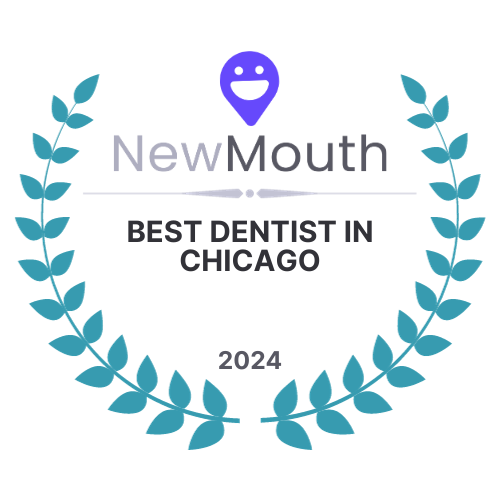5 Habits Your Dentist Wants You to Break
Oral Health and Overall Health: A Proven Connection Breaking Down the Stains: A Guide to Whitening
Anyone who sees a dentist regularly knows the oral home care spiel. Brush twice daily, use an antiseptic mouth rinse, and don’t forget to floss! What you may not take away as readily from these visits are everyday habits that your dentist would LOVE to see you break. There are a number of daily activities, which, if limited or quit altogether, would result in a healthier, happier smile. Let’s examine our practice’s top 5:
Smoking This one should come as no surprise; for years we’ve heard nothing but the evils of smoking from doctors, dentists, surgeons general, and the media. But let’s look at exactly how this affects your teeth.
In addition to the more aesthetic issues of yellowed teeth and bad breath, smoking can lead to serious oral health problems. To begin, it dramatically increases plaque and tartar build up, making it much harder to keep your teeth clean in between dental visits. Even more critical, smoking has been shown to affect normal gum tissue function. It loosens the attachment of your gums and bone to the teeth and inflames the tissue, making you more susceptible to infections like periodontal disease and decreasing your body’s ability to heal itself. Smoking also puts you at a dramatically increased risk of developing oral cancer.
Sugary, Acidic Beverages It’s not just soda we’re dealing with here – coffee, black tea, juices and energy drinks all have their downfalls. And it’s not just the sugar – though that’s a large part of it. An over-abundance of sugar, allowed to sit in the mouth after consumption, will decay the teeth and form cavities. Left unchecked, these cavities could take over the entire tooth, eventually requiring a crown or even extraction.
We also need to be aware of the acid in these drinks. Beverages with high levels essentially bathe your mouth in acid, which when left there can erode enamel and begin disintegrating your teeth. Juices, coffee, tea and soda all contain acids that can have this effect. Energy drinks may be among the worst, as many of them add citric acid to their product. Be sure to check those labels before imbibing.
Our tips if you decide to indulge in these beverages? Drink quickly. Sipping over a long period of time just gives the liquid more time to sit on your teeth. Use a straw whenever possible. And rinse with water when you’re done!
Grinding/Clenching This habit can be tricky; you may not even know you’re doing it. Grinding and clenching, known as bruxism, often happens during sleep, so if your loved one hasn’t clued you in to the sounds of you grinding in the night, you may have no idea it’s happening. Tell tale signs include dull, regular headaches, jaw pain, facial soreness and generalized tooth sensitivity. Grinding may occur due to heavy amounts of stress, an abnormal bite, or crooked/missing teeth.
Bruxism should not be left untreated. Chronic grinding can result in tooth fractures or bone loss. It’s possible to wear your teeth down to stumps if no treatment is sought, necessitating crowns, implants, and possibly full dentures to correct.
The primary method to treat bruxism is having your dentist fit you with a mouth guard. This will protect your teeth from grinding in your sleep. Additionally, there are things you can do on your own to help prevent grinding. Avoid alcohol and coffee if you can; these are known to make the problem worse. When you notice clenching or grinding during the day, place the tip of your tongue between your front teeth. This position helps train your jaw to relax. At night, hold a warm washcloth to the hinge of your jaw (on your cheek in front of your ear lobe) to help relax those tight muscles.
Chewing Ice, Pens, Fingernails The key concept here is chewing things that aren’t food. Hard objects like ice, pens, pencils, etc., chip away at your enamel and can ultimately result in larger chips on your tooth. Nail biting, since the teeth often come down hard against each other in the process, has a similar effect. Such habits can also cause the teeth to shift, leading to more serious problems down the road. Not to mention the foreign bacteria you’re introducing to your mouth by chomping on such objects… our mouths have enough bacteria to fight on their own! Aside from the dental concerns, these habits can be signs of larger issues. They may be symptoms of a compulsive disorder, or in the case of craving ice, may be a sign of anemia. If this habit feels like something you can’t control, talk to a healthcare professional.
Brushing too Hard This is a difficult one for dental professionals. We love to see you brushing your teeth and want to do everything to encourage it. However, brushing too hard can sometimes do as much damage as not brushing at all! When you brush too aggressively, it wears down your tooth structure faster than normal and can exacerbate gum recession. Not only does this increase tooth sensitivity, but gum recession can lead to exposed roots and loose teeth, and may eventually require surgery. So take it easy! See our blog on oral hygiene for a breakdown on how to brush safely and effectively.
So what’s your takeaway? We all have habits we need to break, some more urgently than others. Try your best and see your dentist; they’ll help keep you on the right track.
